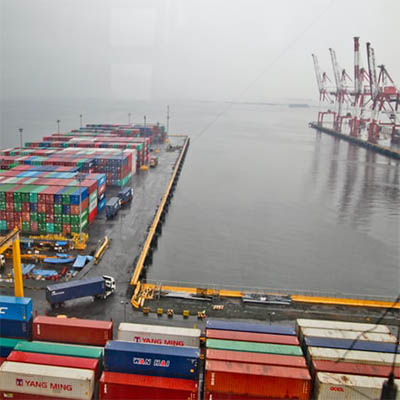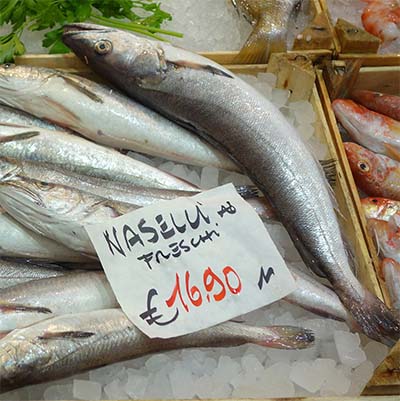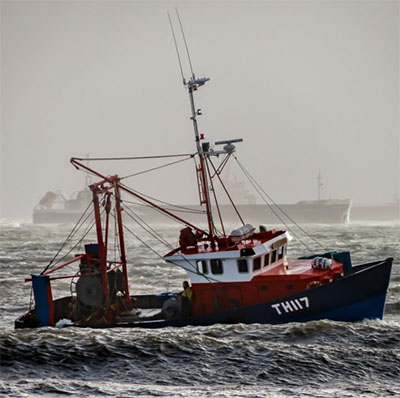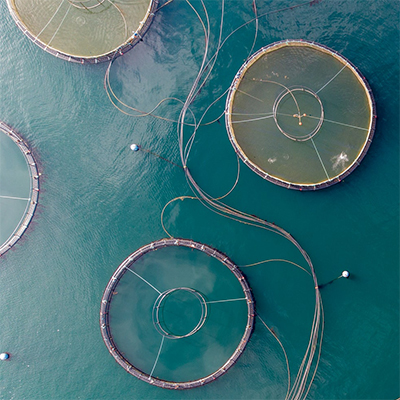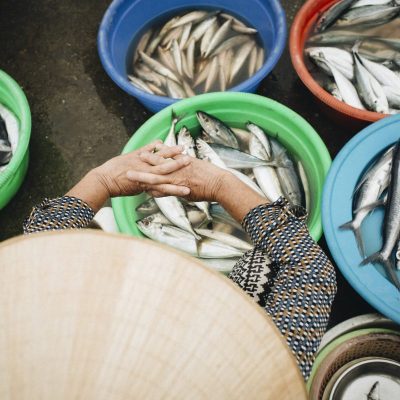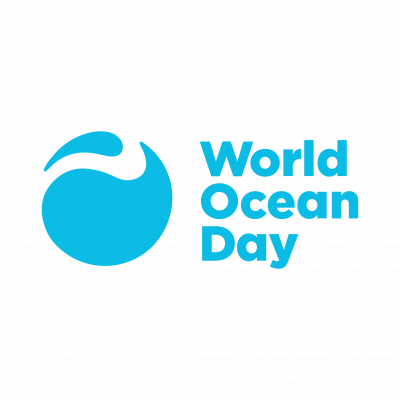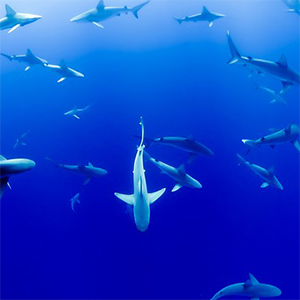New study reveals extent of labor abuse and illegal fishing risks among fishing fleets
A new modeling approach combines machine learning and human insights to map the regions and ports most at risk for illicit practices, like forced labor or illegal catch, and identifies opportunities for mitigating such risks.
Europe’s most valuable marine species “reduced to a fraction” of their current population size by 2100
Over one quarter of Europe’s 20 most highly-fished marine species will be under extreme pressure by 2100 if nothing is done to simultaneously halt climate change, overfishing, and mercury pollution
Nearly half of countries’ shared fish stocks are on the move due to climate change, prompting dispute concerns
The study tracked the shifting ranges of 9,132 transboundary fish stocks, which account for 80 per cent of catch taken from the world’s EEZs, starting in 2006 and projecting to the year 2100.
Climate change creates ‘double jeopardy’ for fish-dependent countries, finds first study of its kind
A new study highlights the importance of collective action to boost resilience across all aquatic food systems to stave off the worst effects of climate change.
Marine biologist William Cheung named director of UBC Institute for the Oceans and Fisheries
The appointment is effective July 1, 2021 through June 30, 2026 with the possibility of an extension
World Ocean Day – Dr. Gabriel Reygondeau
Asking countries to carry an equal share of the load may be tidy from a legislative perspective, but it doesn’t do much for biodiversity
2021 World Ocean Week – June 7-11
We asked ocean researchers from the IOF to envision how the target of protecting at least 30% of the world’s oceans by 2030 might be achieved.
Ecosystem modelling paints a devastating picture for top marine predators by 2099
Without effective carbon mitigation the ocean would lose 18% of animal biomass by 2099 relative to the present day.
